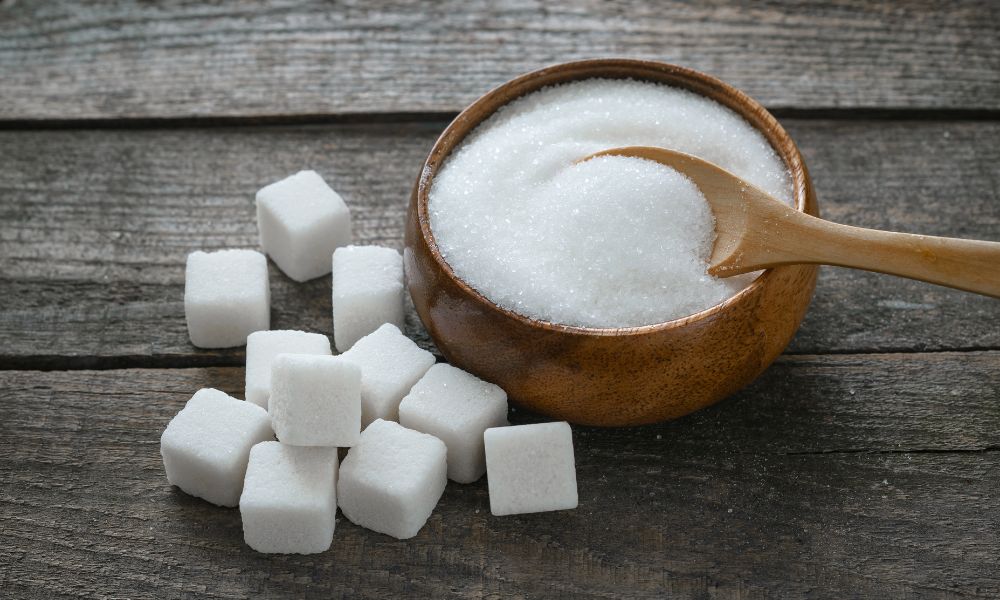
Introduction
Sugar is a must-have ingredient in every household. It’s hard to find a house without this staple ingredient. Its pure white crystals sometimes make it hard to distinguish from salt. But did you know sugar is extracted from sugarcane juice? Have you ever wondered how the juice transforms into white powder? The answer lies in the sugar refining process.
In sugar refining, decolorization is an essential process that ensures the sugar is fit for the quality and standard measures. An unfiltered sugar solution is different in colour and taste; it gets better by the refining process. Without the procedure, it can have an undesirable appeal. Before the procedure, the solution will have various compounds, pigments, and contaminants found in the solution. Removing these factors helps in creating better appeal, taste, and shelf life for the sugar.
Activated carbon is used in sugar refining due to its excellent absorbency properties. It effectively traps unwanted pollutants, impurities, and contaminants, resulting in a purer and clearer final product. Additionally, it is a cost-effective, efficient, and environmentally friendly option for purifying sugar in the refining processes.
Activated carbon is a highly porous form of carbon processed to have an exceptionally large surface area. Making it an effective component for absorbing impurities. It is created out of the coconut shell, coal, and wood at high temperatures in the presence of activating agents, thereby creating a network of pore structure resembling that of a sponge.
Different types of activated carbon take up the pioneering position in sugar refining. They are:
- Powdered Activated Carbon: In sugar refining, for quick results, fine powdered carbon is a great application.
- Granular Activated Carbon: Granular Activated Carbon is primarily used in the filtration stage of the process.
The Need for Decolorization of Sugar Solution
An undesirable colour is obtained in the sugar solution due to the presence of various components. The components may be caramels, melanoidins, and polyphenols, including organic acids, colloidal impurities. That is the reason decolorization is a crucial procedure in sugar refining. It improves the taste, colour, quality, and shelf life of the final product.
The white sugar easily blends with any food items or drinks. The decolorized version loses some of the taste and appeal of the recipes. It may even be a reason for producing off flavours or cause issues during food processing. Moreover, sugar whiteness has a significant impact on the market value, increasing its purchasing power.
Decolorization is a necessary step in refining the sugar because meeting these standards guarantees respect for trade and food safety laws.
How activated carbon applies to sugar solution decolorization
- Activated carbon removes the color from the sugar solution through the adsorption process.
- The porous structure acts like a sponge, where the solution will pass through the tiny pores.
- Decolorization occurs due to the action of Van der Waals forces and electrostatic interactions.
- Key pollutants are pulled out of the solution, making it efficient in pH, temperature, and dosage.
- Activated carbon strikes the best balance, which is cost-effective, efficient, and widely usable.
Benefits of using Activated Carbon for effective Decolorization
- Activated carbon has a high adsorption capacity to remove a wide range of impurities from the sugar solutions.
- The regenerative property of carbon makes it usable multiple times, which improves cost-effectiveness and reusability.
- There are different techniques to remove the impurities and decolorization, which is environmentally friendly compared to some chemical treatments.
Recommendation of Activated Carbon in Sugar Decolorization
- Efficient usage requires careful dosage control and guidance
- Using little carbon affects the cleaning process.
- Regeneration requires high heat, and disposal requires heavy safety and environmental rules.
- Fine carbon particles may remain in the sugar solution, requiring extra filtration.
- Proper planning ensures a smooth and effective process.
Southern Carbon is the best activated carbon supplier in India. The products supplied by Southern Carbon have exceptional properties that remove pigments, contaminants, and impurities, enhancing both product appeal and shelf life. Southern Carbon always tries to leverage the cost effectiveness and eco-friendly standards for industries refining sugar also including gas filtration, and gold mining. We meet our customers’ requirements with efficiency and provide expert guidance at every stage of their decision-making process.
Southern Carbon is also leading as a pioneer in Activated carbon for water purification in India. Not only in India, our services are rooted in the USA, Korea, and Japan. Please visit the website to contact us for more updates.
